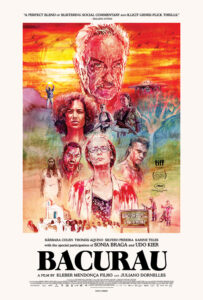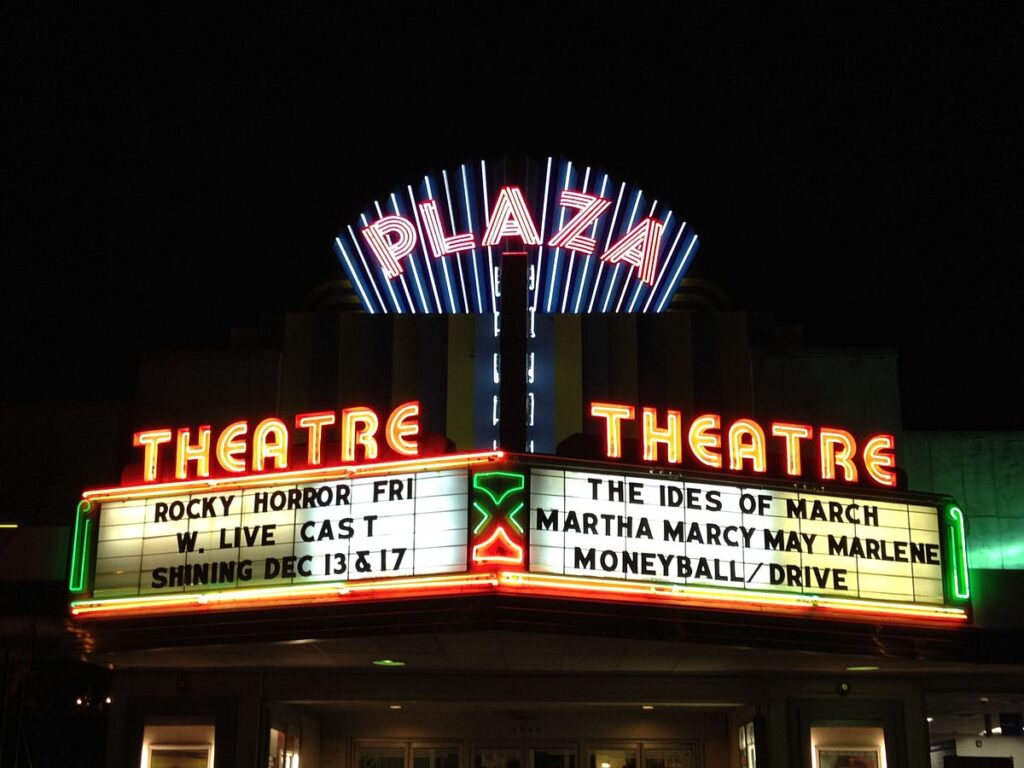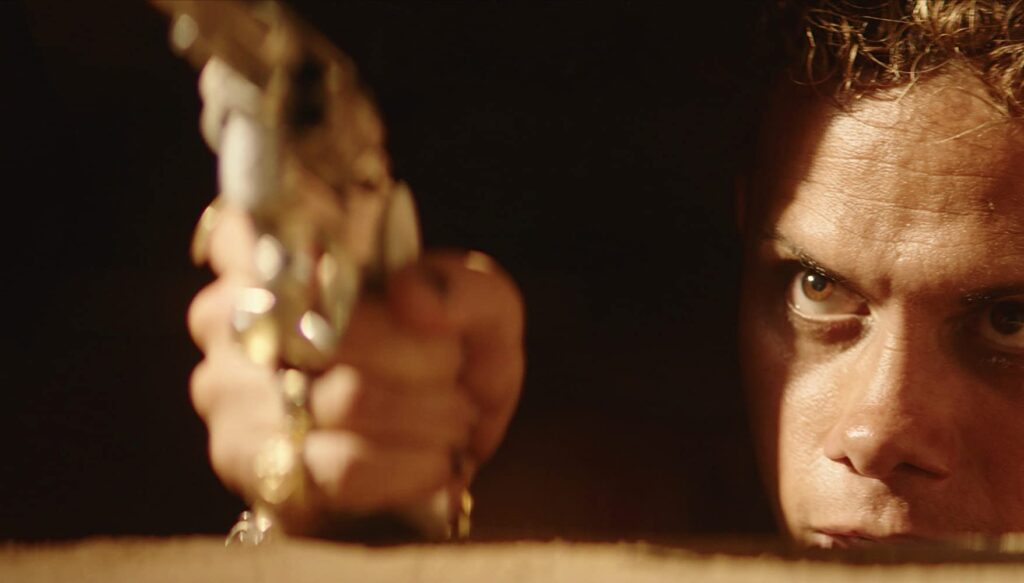Brazilian futuristic thriller is more than meets the eye


With movie theaters closed, distributors pushed films onto the patchwork quilt of streaming services. Navigating these services is like a full-time job that can become so exhausting that you might throw your hands up and dive into Netflix’s shallow and trashy “Tiger King.” But what if your choice could help save the art-house cinema down the street?
Kino Lorber and other distributors have partnered with smaller, independent theaters to share revenue from early VOD releases of unique films. Many of these movies would have had a limited theatrical run before the outbreak. While the limited art house market can produce breakout hits that expand into metroplexes, such release strategy is part of an overall marketing approach that leads into a more lucrative streaming and home video plans.

One of Atlanta’s oldest and best independent theaters is the Plaza on Ponce De Leon Ave. I’ve watched films there for more than 20 years, and it’s one of my favorite places to attend screenings for local filmmakers. There’s no doubt that the shutdown has endangered its continued existence. Frankly, given the vast size of its main theater, I suspect that it could provide plenty of social distance space when things loosen up.
Anyway, Kino Lorber’s KinoNow app is a great way to screen movies that might make a difference to the local filmmaking and art house community. I noticed the Plaza post a link to rent the Brazilian science-fiction thriller “Bacurau” this week and jumped at the chance.

Renting the film was easy, once you’re all set up. You can watch on your computer or mobile device, but I prefer to watch on my television. Using Chromecast or sharing a screen is an option, but Kino has an app that I loaded onto my AppleTV. After renting the film on my iPhone, I logged into the app and found “Bacurau” under my library.
The player is robust and offers subtitles, audio, and closed-capturing tools. Streaming was what you’d expect from a high-end platform. I had no problems even while my neighborhood was likely overloading the broadband.

“Bacurau” is a weirdly beautiful movie. It’s a thriller set in a John Carpenter-esque universe with modern complications. Racism, economic disparity, and quixotic themes rattle through what amounts to Neo-Western telling of “The Most Dangerous Game.”
Set in a struggling rural Brazilian community called Bacurau, the film opens with Teresa (Bárbara Colen) visiting the arid town by transport in the cab of a large water tanker. As they travel, they happen upon an overturned truck that collided with a motorcyclist, who did not survive. Ironically, that truck was carrying coffins that are now sold to passers-by, as the cyclist’s body continues to bleed. Such ominous foreshadowing introduces us to this strange, dangerous place and time.

Once in the town, Teresa delivers medical supplies to Domingas (Sônia Braga), the local doctor. The community has experienced the loss of one of their most valued elders, and Domingas is overwhelmed with grief. She shrieks uncontrollably, lamenting the loss of her friend.
As rustic and possibly unsophisticated as these people might initially appear, we quickly recognize that they are not simpletons. Futuristic technology blends into the old-world living environments, and, while instructing children, a teacher discovers that the town’s hidden on satellite maps. They’ve been erased!
Why has this happened? A flying saucer-like drone hovers about documenting the area for an unseen presence. I won’t spoil anything else other than to say that the filmmakers and co-writers, Juliano Dornelles and Kleber Mendonça Filho, make expert use of a scary, gun-totting appearance by actor Udo Kier.

“Bacurau” is fascinating early. There is a political power grab in play, as a politician rolls in town, and the people shun him. He’s cut off the water and delivers food supplies that are expired and possibly useless. Domingas points out to her people that the “medicine” provided by the politician includes a drug that is taken in the larger cities. It’s a drug that will make you dumb; she points out.
These ideas are undeniably provocative. What’s happened in the world that has caused rationing? Why is control sought of this isolated location? The filmmakers smartly keep the larger context a bit of a mystery. Something frightening is coming to Bacurau, the question is, who is the most dangerous?
This is a movie of two halves. The first half is sharp and mercurial, the second broad and familiar. Like other post-apocalyptic yarns, the barrel of a gun is often the only way these things can conclude. But getting there can be its own reward.

And it helps that “Bacurau” looks so good. Cinematographer Pedro Sotero, who shot Filho’s 2016 film “Aquarius,” reproduces the 1970s film look using the Arri Alexa Mini. The town and the people all have a rich texture. Everything, even the smallest detail, has a lovely authenticity to it, also as the setting is oddly futuristic and foreign. It’s a darned impressive production, obviously mounted with a small budget.
Sotero focuses his camera on unwashed faces. The actors are stripped of any glamor, but there’s a natural beauty to them. Children play and laugh, while an oppressive darkness remains hidden away.
After using Braga so well in “Aquarius,” Filho gives the classic Brazilian actor another memorable role. And Colen is a great choice, a kind of ethereal presence observing the events from slight detachment.
I came away from “Bacurau” wanting to spend more time in the place. Sure, it would be a scary visit, but the risk could be worth it. And I’d pay attention and try to listen to the people there.
In one scene, two tourists stumble upon the community while riding motorcycles in the desert. They walk into a shop that appears to have large carcasses hanging in the same area where you might also sit down for lunch. After having a soft drink, they are strongly encouraged to visit the town’s museum. Smiling dismissively, getting back on their bikes and riding off without visiting the museum is a big mistake.
